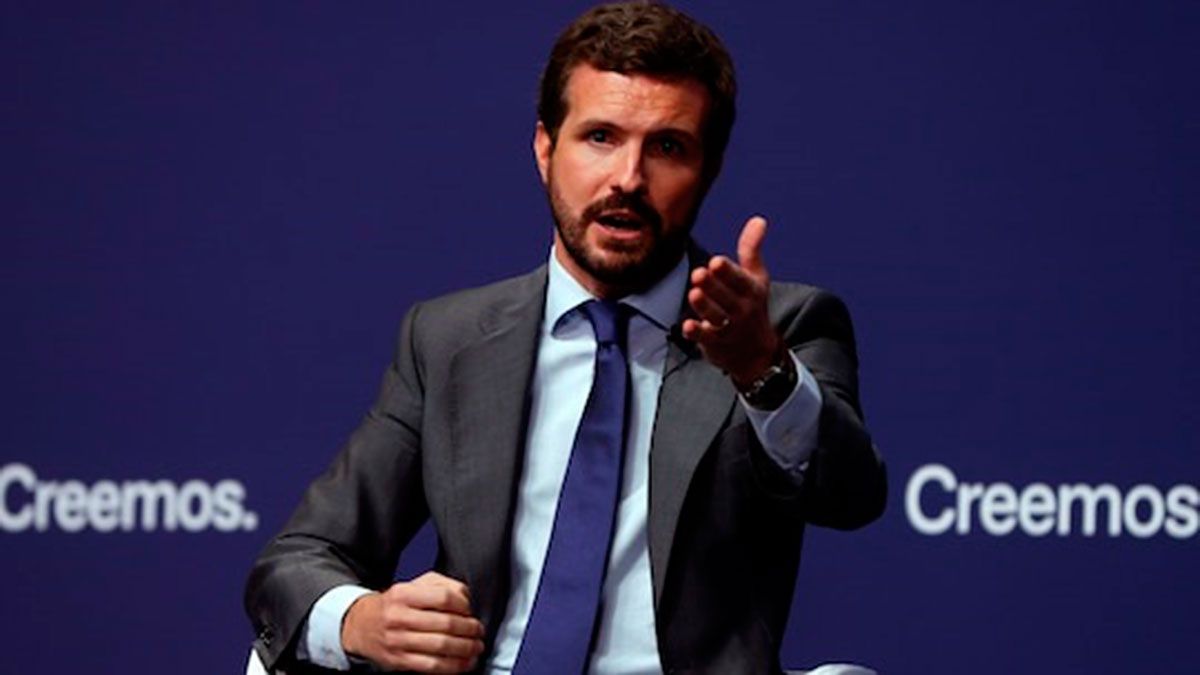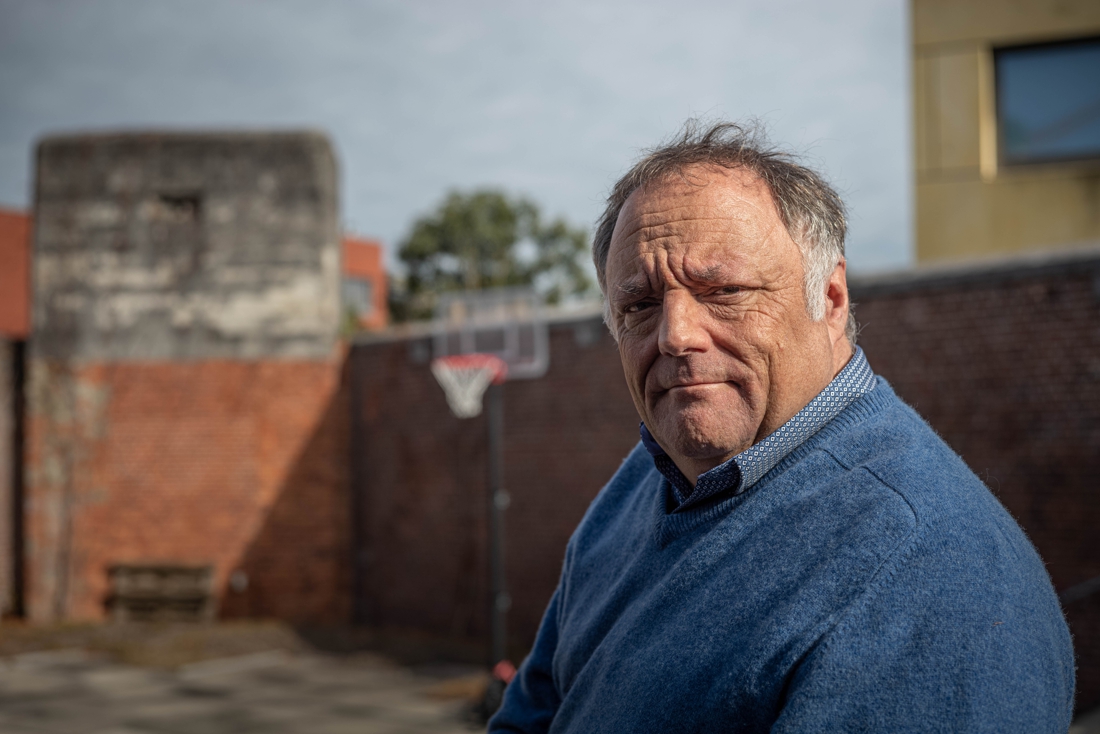My grandmother Nieves was forbidden to speak with her grandchildren. In my memories, she tries to tell me things in a language that I don’t understand. When that happens, there is always someone around reprimanding her like a child: that it is wrong to speak Quechua in front of children, that if they listen to her on the street, no one will respect her.
Today 06:57
By Marco Avilés
Para The Washington Post
My grandmother was indigenous, like a good part of my family and Latin America; and in that Lima In the early 1980s, where we had moved from the Andes, the cold war against our identity was not only lived in discrimination in the streets but in battles within the home. By killing our language, grandparents, children and grandchildren, we were agents of our own deindigenization.
I think of the complexity of this story on this particular October 12, when the anniversary of the arrival of Christopher Columbus the continent and the consequent disruption it caused is accompanied by a sudden crusade of the Popular Party (PP) Spanish to turn American history into a simple fable: “I believe that Spain, when he reached that continent, he liberated the continent, “said the former deputy Toni Cantó on October 6, in tune with the president of the Community of Madrid, Isabel Díaz-Ayuso, for whom Spain he brought “Catholicism and, therefore, civilization and freedom to the American continent.” Perhaps because of that way of looking at history, or not wanting to look at it, the city prohibited the artist Sandra Gamarra to use the word “racism” in his exposition on the colonization of America.
The manipulation and idealization of the colony is not only a Spanish phenomenon, but a trap in which Latin American intellectuals fall in a resounding way; especially when they celebrate miscegenation, as if the story were a soap opera where the ending is necessarily happy. In a recent interview, the Peruvian novelist Mario Vargas Llosa said “(Spain) it brought us a language, unified thanks to Spanish countries where at least 1,500 languages were spoken ”. Although we lived together for several years until she died in 1988, my grandmother Nieves and I could never have a simple conversation. In what way does the Nobel Would you have explained to this Quechua woman that not being able to talk to her grandchildren was actually a form of unification?
It is not the first time Vargas Llosa it is functional to authoritarian narratives. In the last Peruvian elections he supported the candidate Keiko Fujimori, who has denied the forced sterilization of thousands of indigenous women in the 1990s, during her father’s dictatorship. More than five centuries after the landing of the first European soldiers in this part of the world, the last National Convention of the PP, at the end of last September – and in which Vargas Llosa was present — it took place in the midst of a rare mix of imperial ritual and political marketing 2.0.
“Spain is, I think, after Greece and Roma, the most important nation in the history of humanity in terms of its contribution to all other countries, “said the president of the PP, Pablo Casado, with an emotion that did not seem motivated by the mere invention of that past but by the projection of that doubtful identity in the present. Along these lines, the former president Jose Maria Aznar explained that the enemy of his country is in Latin America and it’s called indigenismo. Indigenismo was a cultural and political current of the last century that allowed the non-indigenous elites of Latin America give visibility to indigenous people. But Aznar He was not interested in historical precision but in stirring up the emotions. “Indigenism can only go against Spain”He said to applause. “The new communism there is called indigenismo.” The ovation sealed the presentation of this supposed enemy, in a ritual that recalls the violence of the former president of United States Donald Trump but this time in Latin American language.
What seems like a comedy about the paranoias and imperial nostalgias of a sector of the Spanish right wing, has been taken with enigmatic indifference in Latin America, like Spain, the PP or the stigmatization of indigenous peoples (as anti-Hispanics) were equally remote or irrelevant to us. The silence of the media also extends to the intelligentsia, which, with exceptions such as those of the Peruvian Gabriela Wiener and the mexican Emiliano Monge, has not produced columns, letters, or public statements regarding the attempt to reinvent history in common. What is the reason for this lack of reaction? Will it be the moment to which we will return later to say: “We didn’t see it coming”?
There is a fascinating harmony between the racist-imperialist discourses of the Spanish right and the apparent indifference of the Latin American intelligentsia. Our region, which is diverse in official speeches, is paradoxically shaped by identity myths loaded with an underhanded racism, like the fantasy that here “we are all mixed race.” According to this myth, our ancestors (white, indigenous, African) were biologically and culturally mixed at some point in history, and from them we who live now are descended. The problem is that this ideological fiction turns indigenous peoples into remnants (heroic or long-suffering or barbarian) of the past; people who sooner or later will end up disappearing or dissolving, almost as a logical form of evolution or progress. Mestizaje is a functional ideology for the elites, as it makes the extinction of indigenous languages and peoples tolerable and even “normal”. The rejection of Quechua, when I was a child, was a cultural surgery that was practiced in most homes like mine. It has taken me many years to understand my own story of deindigenization and its relationship to the silencing of my grandmothers.
That the white and mestizo Latin American elites do not offer an organic reaction against the racist messages of the Spanish radical right may be an indicator of their own connections and disconnections, of their biases and estrangements. But the indigenous intelligentsia, even though they are not consulted, and despite the fact that many times they are not even seen as intellectuals, they have been responding to attacks and challenges since 1492, as he has explained to me. Tarcila Rivera Zea, spokeswoman for Continental Liaison of Indigenous Women of the Americas. Seemingly silenced people, like my grandmother NievesThey have been able to set an example of rebellion and find forms of expression over time. The many words he said to me in Quechua, although I could not understand them at the time, are the most lucid example of rebellion that I know of the unspeakable surrealism of postcolonial life.
–


